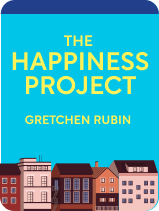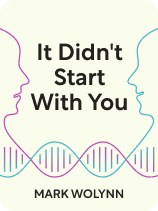

This article gives you a glimpse of what you can learn with Shortform. Shortform has the world’s best guides to 1000+ nonfiction books, plus other resources to help you accelerate your learning.
Want to learn faster and get smarter? Sign up for a free trial here .
What does it mean to grow spiritually? What are some things you can do to develop your spirituality?
Spirituality is an elusive concept because it means different things to different people. Additionally, you don’t have to be religious to practice spirituality and achieve spiritual growth. Spiritual growth is about developing qualities that make you a stronger and a better person.
Keep reading for advice on how to grow spiritually.
Spirituality and Spiritual Growth
Research shows a strong positive correlation between spirituality and happiness in that spiritual people—that is, people who spend time considering various spiritual states—are happier with their lives overall. In turn, this elevated happiness grants them better mental and physical health, greater longevity, and an increased ability to deal with stressors.
You don’t have to be religious to grow spiritually. Spiritual growth means letting go of what’s burdening your soul and facing the uncomfortable truths about life. With this in mind, here are some tips on how to grow spiritually, whether you’re religious or not.
1. Forgive Those Who’ve Wronged You
Forgiveness is a powerful catalyst for spiritual growth. By forgiving someone who caused you pain, you unburden yourself of grudges, which zap your spiritual energy.
In her book You Can Heal Your Life, self-help guru Louise Hay says that one exercise you can do to forgive someone who hurt you is to say out loud to yourself the name of the person you need to forgive, then state that you forgive them and identify the specific action or behavior for which you’re forgiving them. Another approach is to imagine the person you have the hardest time forgiving, then visualize good things happening to them.
Because negative childhood experiences can have such an outsized impact on our lives, Hay believes it’s particularly important to forgive your parents. She advocates forgiving your parents or caregivers for the ways in which they’ve wronged you—not to give them a “free pass” for their behavior, but to help you move forward with your own life. She suggests asking your parents what their childhoods were like to better understand why they acted the way they did. This will allow you to have more compassion for them, which in turn will allow you to have more compassion for yourself. They were hurt, and they hurt you—but you don’t have to keep hurting yourself, says Hay.
2. Contemplate Death
Death is the best spiritual teacher because it makes you confront the reality you’re going to face one day, and it may be sooner than you expect. Taking the time to contemplate death every now and then can help you appreciate and experience life more intensely. Every moment of your life can fill you completely and touch the very depths of your being, like the experience of finally hearing your favorite classical composition played by your favorite orchestra.
In his book The Untethered Soul, author Michael A. Singer advises to think of death any time you’re having trouble. Are you experiencing anger or jealousy? Think of what it will be like when you’re dead and gone. This will put the immediate trigger in perspective and elicit compassion for whoever or whatever is inciting your feelings.
Study the words and actions of the great spiritual teachers, who fully embrace death. St. Paul said, “Oh death, where is thy sting? Oh grave, where is thy victory?” Buddhists contemplate the temporal nature of all things. Yogis meditate in graveyards. Take inspiration and guidance from such people.
3. Adopt a Spiritual Guide
You can become more disciplined in your spiritual growth by finding a “spiritual guide” to look up to. This guide can be anyone who speaks to you—a favorite writer such as Mary Oliver or Thoreau, an artist such as Van Gogh or Monet, a scientific figure like Darwin, or a religious figure like St. Francis. Your guide doesn’t have to have heroic or publicized virtue—they just need to have virtues that you seek to achieve yourself.
4. Let Go of Trauma
Letting go of psychological trauma is the most powerful thing you can do for your spirituality. This is because trauma is stored deeply in your body and in your unconscious, so it is extremely difficult to process and let go.
When anything even remotely similar to the trauma occurs, we often experience the same panic and distress as during the initial incident. This can influence our lives in unexpected ways. Maybe last year you were mugged while you were leaving work. Now you break out into a cold sweat near the end of every workday, you can’t bring yourself to go anywhere new unless someone goes with you, and you flinch when your partner reaches for you.
According to Mark Wolynn, the author of It Didn’t Start With You, to let go of trauma, you should capture your experience and feelings in words by simply talking about it. Until then, Wolynn says, healing will be elusive—focused only on managing symptoms rather than healing the pain at its source.
Final Words
Spiritual growth is a never-ending process. There will always be opportunities to grow spiritually, no matter how old you are. The further along you are on your spiritual path, the more equipped you will be to deal with life’s challenges and the more at peace with yourself you will feel.
If you enjoyed our article about how to grow spiritually, check out the following suggestions for further reading:
In The Fifth Agreement, don Miguel Ruiz and don Jose Ruiz describe five “agreements” to make with yourself that adjust the way you see the world and your place in it. According to the authors, these agreements are a series of intuitively common-sense principles we are all aware of, but which few of us actually practice. Those who have mastered the five agreements, the authors say, completely accept themselves as they are, and accept everyone else as they are—and the result is eternal happiness.
In Radical Acceptance, Tara Brach, a practicing psychologist and devout Buddhist, discusses how we can use the meditative practice of Radical Acceptance to live our lives more fully by always bringing our full attention to the present moment and accepting it for what it is. Through Radical Acceptance, you’ll learn how to grow spiritually and release the illusions you’ve trapped yourself in.

Want to fast-track your learning? With Shortform, you’ll gain insights you won't find anywhere else .
Here's what you’ll get when you sign up for Shortform :
- Complicated ideas explained in simple and concise ways
- Smart analysis that connects what you’re reading to other key concepts
- Writing with zero fluff because we know how important your time is









